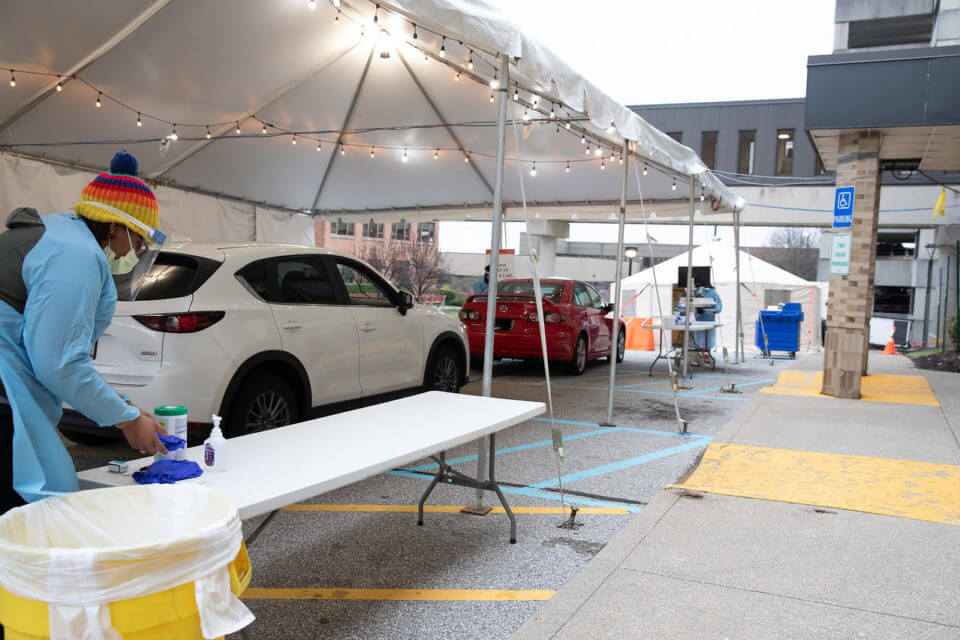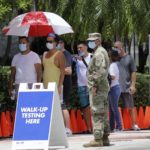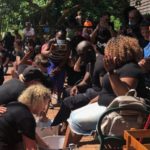
“If the global social discourse continues to be one where we ignore what does not directly affect us, then when the next global emergency occurs, governments will fail people again.”
At the beginning of 2020, undoubtedly, the world changed. However, did it change permanently? The current Coronavirus (COVID-19) pandemic has threatened what we have regarded as our normal way of life. Of course, there are (and have been) other significant global and national problems, whether it be climate change, poverty, femicide, or low wages. However, there has also been the belief that the solutions to these longstanding problems could be remedied through certain public policies, which, in turn, generated a certain feeling of control. As this line of thinking goes, ideally, with sufficient political will or pressure from citizens, solutions to these problems could be achieved. Furthermore, many of these previous problems only affected certain segments of society, leaving a chasm between those concerned about them (and protesting on their behalf) and the rest of the world.
Previously, it might have been part of our normal way of life to avoid certain neighborhoods at night for safety reasons—or to avoid certain foods because of health concerns. However, COVID-19 is not just happening “elsewhere,” and we are certainly not immune to it.
COVID-19, however, has completely erased this feeling of control, and it has also diminished the divide between those protesting against certain issues and everyone else. This is because the ongoing pandemic affects everyone and makes no economic, social, or political distinctions. Maybe it is the very blurring of this divide that has made many of us, particularly those accustomed to avoiding large-scale problems, feel so vulnerable. Previously, it might have been part of our normal way of life to avoid certain neighborhoods at night for safety reasons—or to avoid certain foods because of health concerns. However, COVID-19 is not just happening “elsewhere,” and we are certainly not immune to it.
The pandemic has made us equal in many ways, and being equal in front of a single crisis is not something that often happens. Of course, there are groups that are more vulnerable than others because of their health or age, and there are, indeed, differences in the way various national governments are handling the pandemic. However, the initial and immediate threat of COVID-19 for the entire world population does not consider borders, religions, or political affiliations. It is a matter of being vulnerable by virtue of being human. International mobility has been restrained; many governments are facing a lack of medical supplies and hospital beds, and the socioeconomic divisions that previously enabled large segments of society to be able to ignore certain other widespread problems are being erased.
On the other hand, the differences between how governments are handling the pandemic have made the socioeconomic divides that historically exist between the developed and the developing world more evident. Were we really aware of these differences in our normal way of life? Did we choose to ignore them? And now that these are more visible, the question might not even be if we will eventually go back to normal. But how will we go back to normal? Will recovering from the pandemic be accompanied by more public spending for healthcare and pharmaceutical research, by universal healthcare systems, and by a renewed spirit of international cooperation? Will we come back to normalcy being aware that despite our cultural, economic, and political differences, our shared human condition makes us all vulnerable? Or will we return by focusing on an economic recovery that still leaves behind many in great need? Are countries just waiting for the pandemic to be over, rather than to create more jobs and better social plans? Will wars for natural resources resume when the pandemic subsides?
Perhaps media coverage of how countries are dealing with COVID-19 has not only increased our social anxiety (as we reflect upon being quarantined while life continues with or without us in other places). Regardless, it has also shown us an uncomfortable truth. Within our normal way of life, we might have been aware of daily life problems that appeared almost normal, whether it be corrupt governments, socioeconomic gaps, unemployment, low wages, or lack of access to healthcare. However, now, the human cost of all of this has become more evident, and the global society cannot solely rely on governments to provide timely advice and proper solutions to a problem that goes beyond them.
With the exception of healthcare workers, our contribution to minimizing the effects of this pandemic comes not from academic degrees or personal achievements. Rather, it takes the form of understanding that—in crises such as these—our individual actions have a direct impact on our neighbors, friends, family, and even those we’ll never meet. And this is true whether we are aware of this impact or not. Hopefully, this type of awareness will change our previous normal way of life and will leave no question about the importance of healthcare and service workers, whose existence we might often take for granted. COVID-19 is not the first pandemic, and it will not be the last. If the global social discourse continues to be one where we ignore what does not directly affect us, then when the next global emergency occurs, governments will fail people again. People in need will not be able to pay their bills; unemployment will rise again; and we would have learned nothing from this pandemic.
Sandra Wong holds a Bachelors in International Relations and a Masters in Public Applied Administration, both from Monterrey’s Institute of Technology and Higher Education. She has professional experience in diplomacy and public policy analysis in Mexico and Central America.










